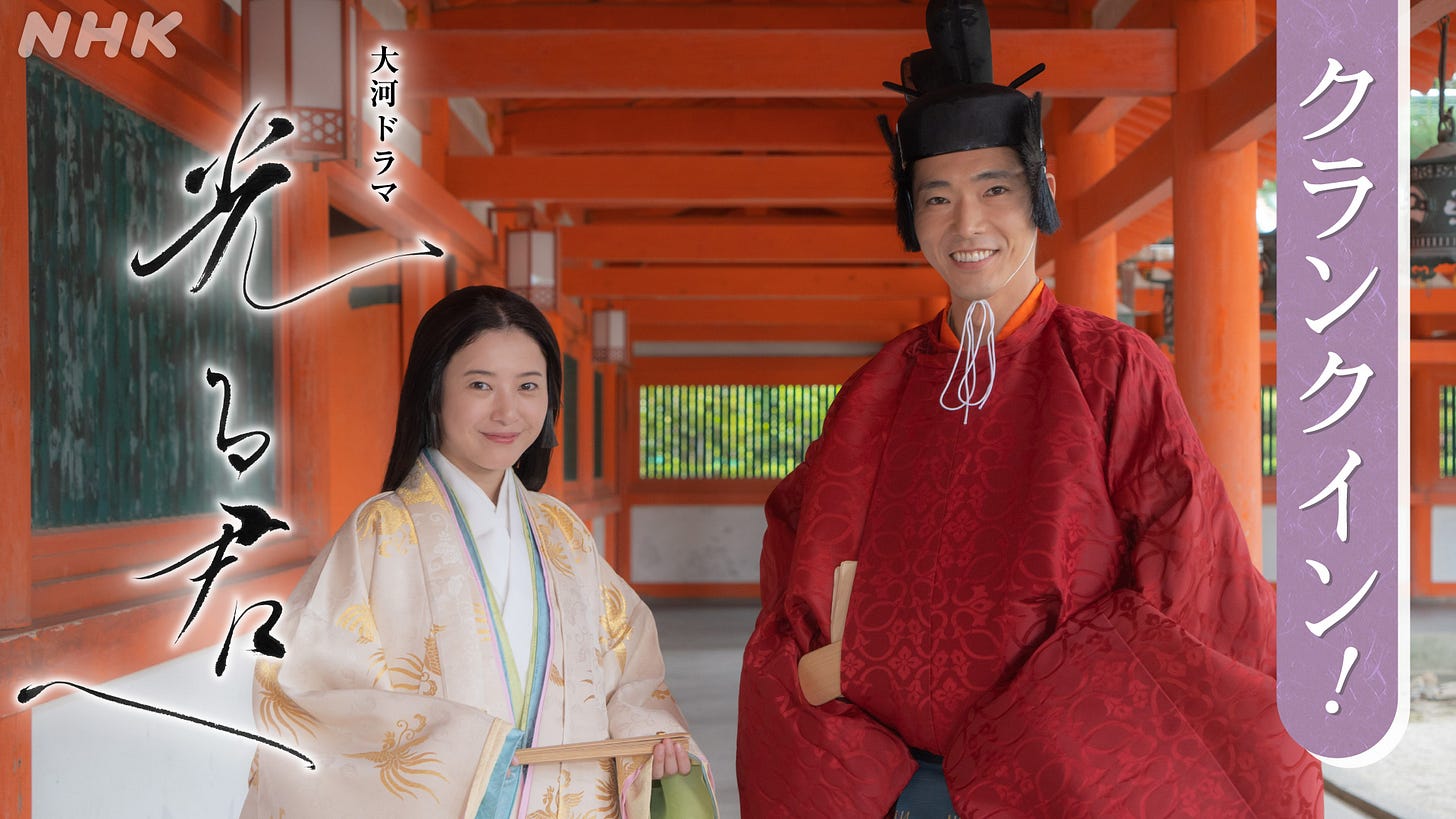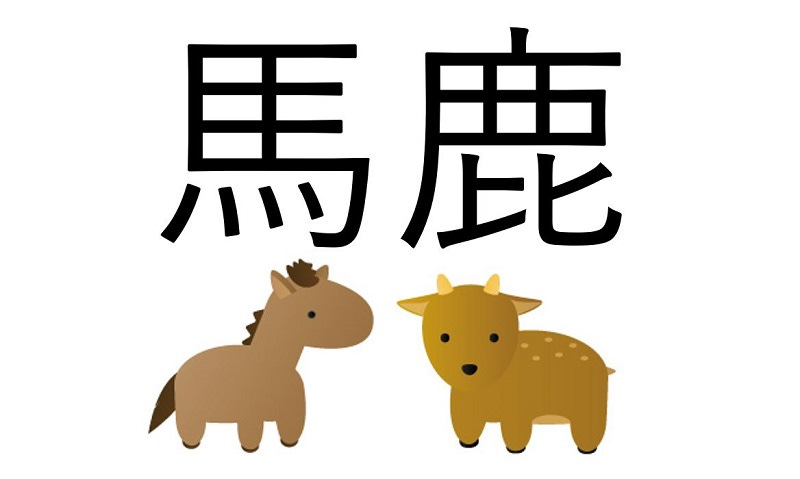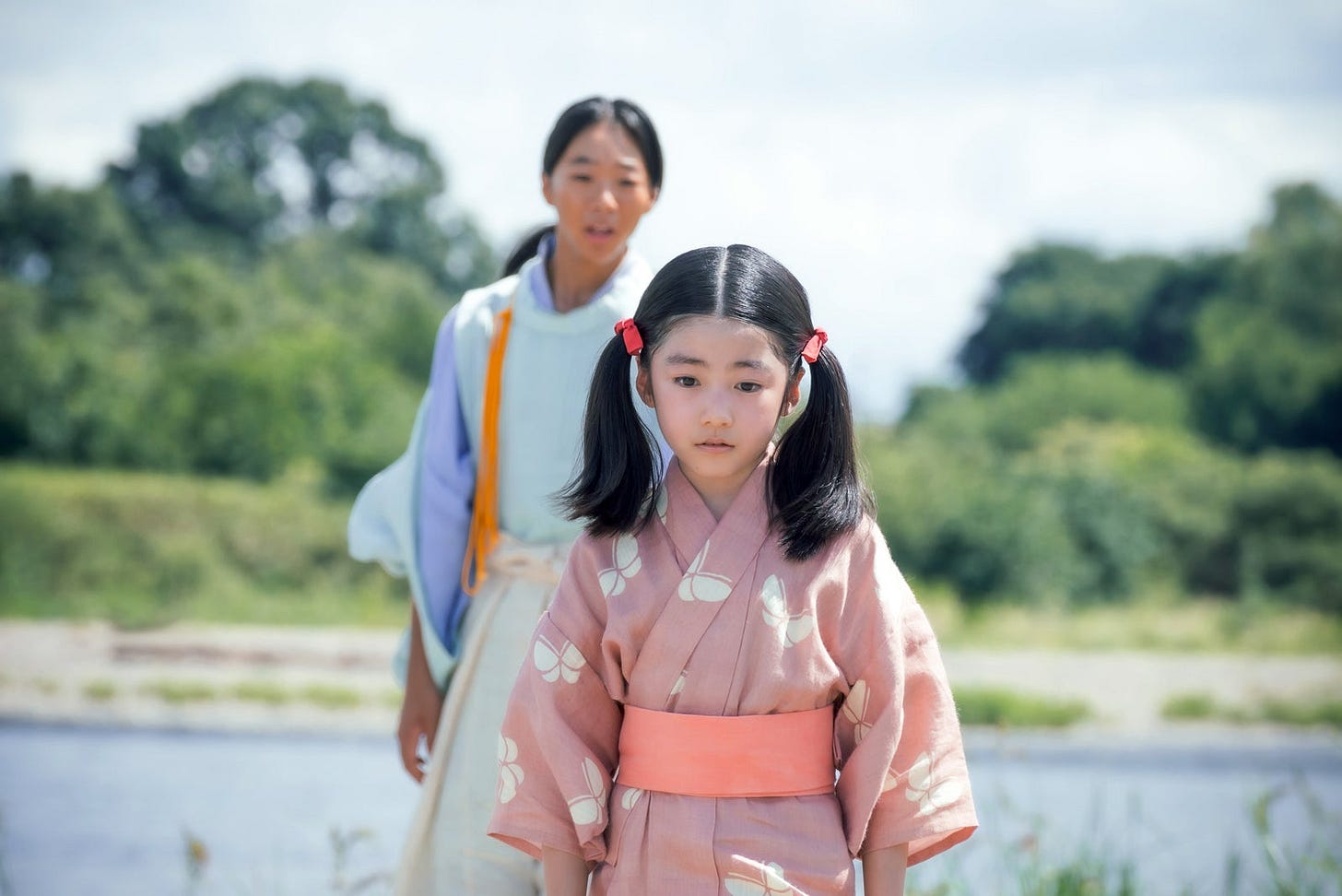The Life of Murasaki Shikibu (NHK Taiga Drama 2024) 光る君へ
And the word "baka" 馬鹿
I was so excited when my friend Maya told me that this year’s Taiga Drama (*)is about Murasaki Shikibu’s life. Since I am doing a re-read of the Tale of Genji, I really wanted to watch the drama— though honestly I was a bit worried about how much I would understand. The story takes place in the Heian period and while there isn’t much 10th-11th century Japanese being used, I was still concerned that my decade-plus absence from Japan would have a negative impact on my ability to follow the story.
Luckily, listening is something that is easier to maintain passively, and I happily didn’t struggle with the first episode as much as I thought I would. Reading and listening still feel strong for me, which is nice since I devoted untold hours into learning Japanese. Writing is mainly gone, gone, totally gone…. but really, I have not tried to maintain my language skills in any way since returning to California.
Anyway, this year’s drama started on January 7th and is called Dear Radiance (光る君へ, Hikaru Kimi e) “Hikaru” or “Radiance” refers to “Hikaru Genji,” the “shining prince” from the Tale of Genji. And Episode One takes place when Murasaki is a little girl.
The actress is so adorable!!!
In the episode, they repeat the old story about how as a child, little Murasaki showed such a keen interest in learning—especially in the Chinese classics and reading and writing kanbun. And how her father, who was a scholar, remarked that it really was too bad she was born a girl since she showed such promise in learning. The show is making me want to read Liza Dalby’s novelization of Murasaki’s life. I tried reading it a few years ago, but could never get into it. I should try again!!
Something that really caught my attention in the show was the origins of the surpring kanji used to write the Japanese word for “fool,” or “baka.” Written as horse deer, 馬鹿 baka, is one of the most famous Japanese words that even people with only a passing understanding of Japanese have probably heard. Since Japan does not have a lot of “bad words” baka is used a lot in Japan!
But why is fool written as horse deer???
After Murasaki’s father remarks that it’s too bad she wasn’t born a boy, he reads her a passage from the Chinese Records of the Grand Historian 史記 about the First Emperor Qin Shi Huang and infamous traitor, the Minister Zhao Gao (died 207 BCE). Wanting to wrest control of power and the mandate to rule, Zhao brings a deer to court and pointing to it, calls it a horse. The second emperor laughs and says, “Aren’t you mistaken? That looks like a horse to me,” to which Zhao asks everyone in the room: “is this a deer or is it a horse?”—Most present, however, wanting to ingratiate themselves with the minister, called the deer a horse. But to those who remained silent, he later had killed.
This is where the Chinese idiom "point at a deer and say horse" 指鹿為馬 comes from and the Japanese 鹿を指して馬となす Shika o Sashite Uma to Nasu) meaning "deliberate misrepresentation for ulterior purposes."
I wonder if this is the earliest case of gaslighting?
But what of the ministers? Is it not better to save one’s own life by calling a deer or horse? What if one’s family is threatened?
This expression soon becomes very apt in the drama.
Although the scene happens quickly as her father reads the dense Chinese aloud to her, the story of “baka” is soon repeated when she meets Michinaga and explains to him the meaning of the word baka. They meet after she has lost her pet bird (a tree sparrow, suzume) and he tells her that birds should never be caged. And she then explains what baka means. It is adorable!
Here is a trailer from episode one. The entire episode is linked below.
(*)For those who might not know, Taiga Drama 大河ドラマ are the big-budget year-long historical drama series produced every year in Japan. As Maya pointed out, these big budget productions allows for incredible production values—including costume and music. So far, I can unable to find a version with subtitles—but here below is the first episode. To help, I bought several of these books from Kinokuniya.
Full episode here:
https://www.dailymotion.com/video/x8r8nti
Thank you, Maya!!! 感謝!







As a "Genji-ist," I have not missed a single episode, though torn between admiration for the highly imaginative depiction of Murasaki Shikibu's life and wincing at the anachronisms and cultural incongruity...There are clearly references to the Genji. In the Waka-murasaki chapter, Genji first glimpses the young girl who will become the great love of his life. She is weeping over the escape of her pet sparrow. Her nurse gives her no sympathy: 罪得ることぞと、常に聞こゆるを、心憂く. 'It is a sin [to keep such creatures caged], as I have repeatedly told you. Oh, oh, woe is me!"
Oh great! I missed the first episode and happy to find the link here. And I never knew baka was even written with kanji. While I too wish there were subtitles, these are such wonderful productions, I don't mind at all if I miss some of the story--I revel in the costumes and scenery.